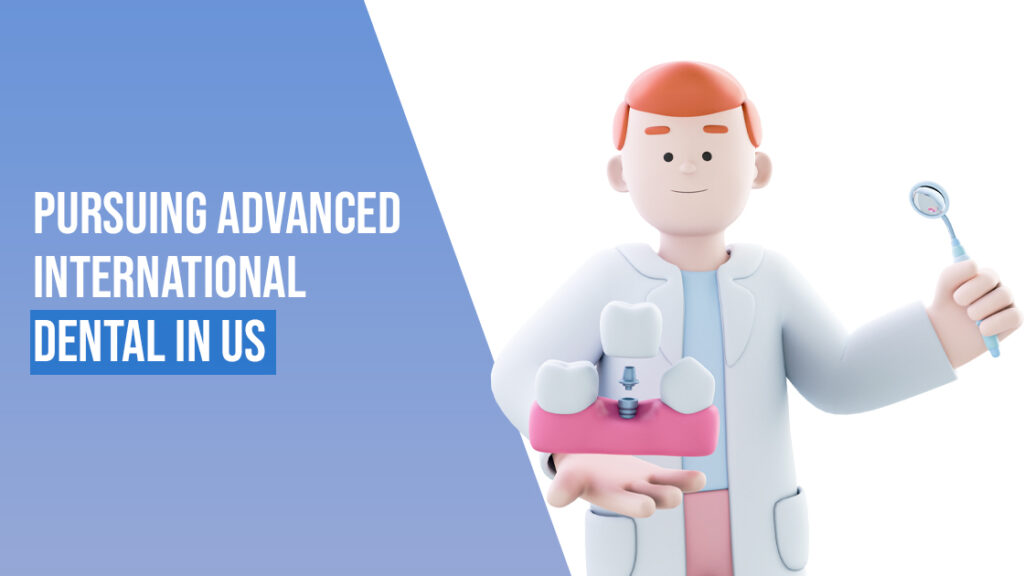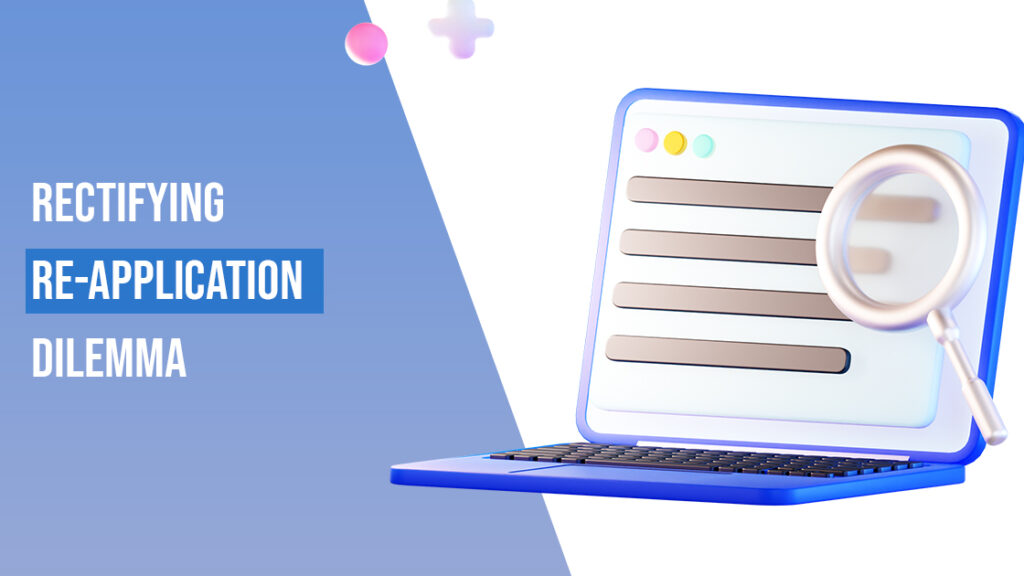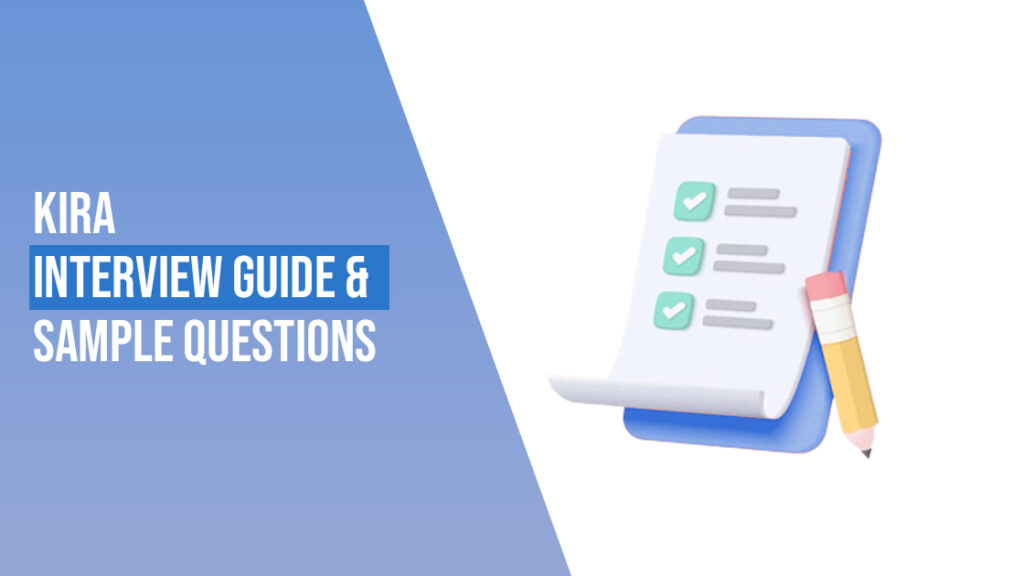Are you a PASS aspirant, preparing in earnest for your residency interview? Then this blog is specially for you! Of the many whys, what’s, and how’s your interviewer will throw at you during the interview, a crucial one will be, ‘Why do you want to pursue this specialty/this dental program?’ For, this ‘why’ is what will help them assess ‘who’ you are and ‘whether’ you fit into their ideology and ecosystem. Therefore, you must succeed in convincing them that you are indeed an excellent choice for the discipline and their program. Now, how can you do that? We are sharing some proven tips that can help you persuade them to accept you!
-
A NATURAL FIT INTO THE SPECIALTY
The most relevant answer to the residency interview question “Why this specialty?” is to, obviously, showcase your natural fit into the stream. In simpler terms, you should talk about how you are naturally endowed with the precise skills the specialty calls for. Not just tell, but show.
While all specialties call for excellent hand skills, patient interaction, and team-playing abilities, each one also calls for certain specific traits. A winning interview with a memorable recall value is one where you can clearly establish your flair for those exact qualities.
For instance,
- Prosthodontics involves extensive fabrication and craftsmanship abilities. If you can tie it up with, say, an award-winning model you had ideated and crafted or your outstanding lego-building skills, you have established a correlation that proves your natural fit into Prosthodontics.
- Pediatrics calls for extreme patience levels attuned to handling children. Here you can talk about volunteering at children’s homes early on or having doubled up as the babysitter for your cousins. These can be vividly portrayed as valuable add-ons that have shaped you for a residency in Pediatrics.
- Dental Public Health encompasses policy making at a macro level and extensive research skills along with a strong social conscience. Anyone with a strong community-oriented purpose, good planning, and organizing skills, alongside a strong flair for research and analysis, can make an effective case for this residency.
- Endodontics warrants intricate hand skills and an eye for detail. So, suppose you are a henna or mandala art enthusiast with exquisite dexterity and a penchant for perfection. In that case, you can capitalize on that talent of yours and talk about it in the interview to showcase the specialty as your automatic choice!
Interestingly, in the past, we have encountered applicants who displayed their art work in the background (in case of an online interview) and others who have exhibited print-outs of their work during the in-person interview! Such out-of-the-box techniques may decidedly catch your interviewer’s eye and attention.
Outlandish as it may sound, these traits of yours need not always be centered around dentistry! As mentioned above, even your obsession with Lego blocks could indicate your inherent talent to craft, create, and fabricate! All you need to do is establish a direct connection between the prerequisites of the specialty and your natural abilities. In a nutshell, your narrative should sound like the below equation:
Requirements of the specialty = Precise skills you possess
So, how can you position yourself as the ideal candidate for that discipline during residency? The below infographic outlines the steps to help you do just that.
- Identify the traits the specialty calls for
- Recollect instances from your experiences//hobbies/talents that showcase such traits in you
- Prepare a brief yet convincing answer connecting these two.
And lo, you have the perfect response to your interviewer’s “why do you want to pursue this specialty?”
AN ACQUIRED INTEREST IN THE SPECIALTY
But then, not everyone is blessed with a clear vision of who they are or what they want at the outset. For most of us, the genuine answer to that question is, at best, ambiguous. It often happened to be what you were exposed to or serendipitously chose and later excelled at. Thus, the specialty is an acquired/developed interest.
Now, is that something you can divulge to your interviewer? Yes, but in not as many terms. So, instead, you need to center the conversation around
How did you develop/acquire an interest
There are multiple ways in which you can frame an answer as to how you acquired an interest in a particular specialty. While the truth is the most recommended reason, here are some more possible ones that can help you clarify your choice to the interviewer.
- Clinical rotation – You could always talk about how your clinical rotation introduced you to the various specialties and one became particularly attractive to you. For instance, Prostho could have become fascinating given the amount of time you spent at the lab, mastering the art of crafting those perfect dentures or relining them. Or spending a lot of time treating a specific patient pool (seniors, children, etc) could have influenced your decision.
- Personal experience – Having gone through a particular procedure yourself could have lent a charm to that specialty, say, all those sessions for braces as a child, led you to favor Orthodontics.
- Research – This is truer for applicants who were equanimous toward multiple specialties. Talking about how you meticulously researched the specialty in question, the technology it entails, its current trends and future prospects, and how they align well with your background and aspirations is always a memorable answer.
- Association/Practice/Externship – It is quite likely that you practiced (after your undergradation)/undertook an externship at a specialty setting and were thus more exposed to that discipline. Or you enrolled in an association pertinent to that specialty. Naturally, that sense of familiarity prompted your choice of specialty.
- External Influences – Becoming inspired by mentors and role models who are practitioners of a distinct specialty, or by motivational books/talk shows/conferences make a fairly good case for your choice of specialty. We vividly remember a female candidate bowled over by a study titled “Women in Prosthodontics” by the American College of Prosthodontists and decided to apply to multiple Prosthodontics Residency programs. What is interesting is that she got interviewed at a premier school by one of the co-authors of the book herself!
- Previous Residency – Often, applicants with a Masters/Residency from their home country seek to pursue the same as part of the PASS Programl. While we strongly recommend aligning your answer to one of the above-mentioned options, you can mention your previous degree as a rationale as well behind your current choice. As an Oral Surgeon, it is only natural that you are attuned to the demands of your discipline and want to continue being one in the US too.
- Other Reasons – You could quote your favorite aspects of being that specialist or, depending on the environment, the pecuniary aspects of the particular specialty (without making it the focal point of your response).
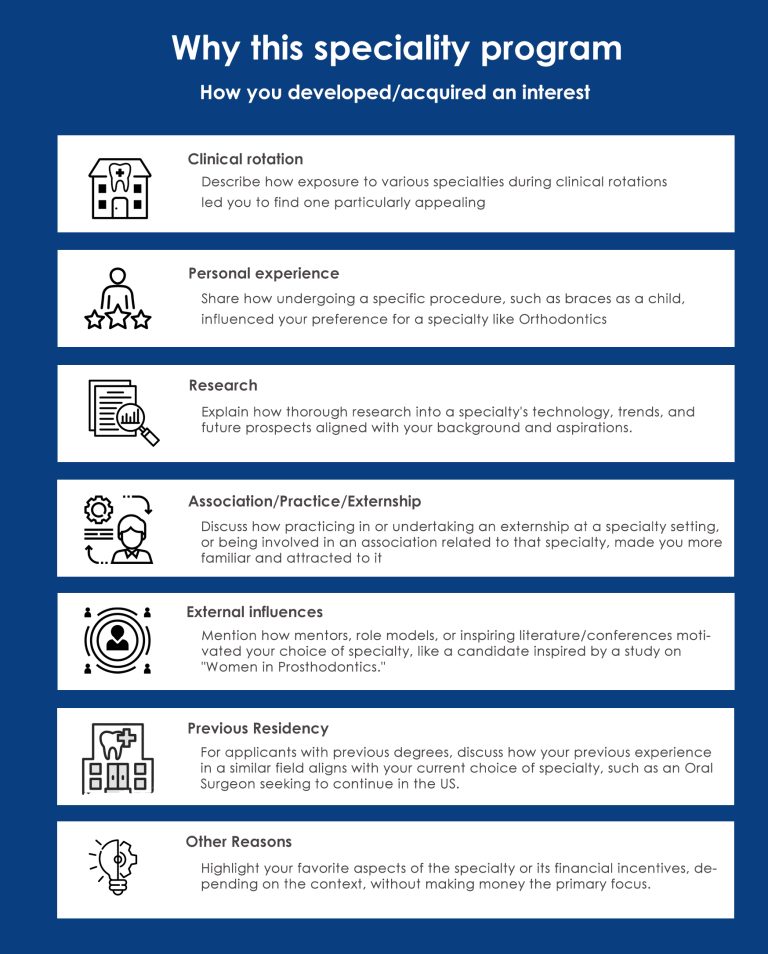
And these are, what we believe, the additional options to include in your response to why you would like to pursue a particular dental specialty.
We also present samples of interview responses that exemplify our lengthy narrative.
SAMPLE RESPONSES:
An applicant to an Orthodontic Residency Program was asked – “Why Orthodontics?”
Applicant’s response:
The Orthodontic department of my college had a big poster – it said Bullying Bites. It, unfortunately, reminded me of my little brother’s childhood trauma of having to brave bullying – solely because of a pronounced prognathic lower jaw. Helpless as a child, but hopeful for the future, I had chosen to become a dentist. Coincidentally, I was called upon to assist my Orthodontics Professor in treating an 18-year old with the exact prognosis.
While that explains half of my intent to pursue Orthodontics – to help transform the lives of many such little brothers and sisters – I also discovered my natural fit into the stream. The elaborate, complex treatment planning Orthodontics entailed and the patient iterations it warranted were exactly my style. Since childhood, I had a natural flair for meticulous planning, organizing, and time management. Even as a practicing dentist back in my home country, my patient appointment calendar was always fully booked, and not one appointment was missed due to poor planning or timing. In my 2 years there, I treated over 400 patients tirelessly.
This 2-minute answer clearly yet concisely explains the applicant’s intent and inherent talent for the specialty, in addition to lending a recallable memory in the interviewer’s mind. Do we need to reiterate how this narration has ticked all the boxes of an effective interview response?
Here is another sample for you:
A Pediatric Residency aspirant was asked – “Why do you believe you will make a good pediatric dentist?”
Applicant’s response:
“Well, this may sound cliched, even a tad weird, but the truth is that I love kids. I am not necessarily an extrovert, but I am more at ease with kids. It probably stems from the fact that I am the eldest child among 6 kids growing up in a joint family. Taking care of them and building a bond with them based on trust and mutual understanding constituted a large part of my adolescence and youth.
And, more relevant is the fact that kids feel comfortable around me. They have always taken a quick liking to me, even the shyest of kids. During our college dental camps at schools for underprivileged children, my creative narrations and clear-to-follow instructions meant my wards were better informed about dental and oral hygiene.
That said, in pediatric dentistry, you have an additional stakeholder involved – not just the patient but also the patient’s parent. Thus it becomes vital to build that trust with the parent as well. I am generally tuned to handling anxious parents and often touted as one with immense patience for my ability to deal with two sets of people for every procedure undertaken.
Such abilities, alongside the other qualities I possess that are expected of a skilled practitioner, I believe have set me up to become an excellent pediatric practitioner.”
And with that, we have made our point crystal clear.
WHY THIS PROGRAM
A similar question that is most likely to pop up in your interview (both residency and CAAPID) is “Why do you want to pursue residency/DDS/DMD at our school?” or “Why do you choose this particular program?”
Your answer to this question should be along similar lines we suggested for the earlier question, “why this specialty?” It should once again showcase your fit into the program/school and influence the interviewer that, indeed you gel well with the school’s mission and the program’s specifications. However, your response in this case cannot be limited to discussing about your personal fit and aspirations. It entails some extensive research about the school and its program, and your answer customized for each such school you are interviewing at. And again, we are going to share some time-tested tips to help you in your argument.
PERSONAL FIT INTO THE DENTAL PROGRAM & DENTAL SCHOOL
Proving to the admissions committee and interview panel that you are a perfect choice for the school & program is a straight-forward task.
All you have to do is position your background and aspirations in line with the school’s vision and mission and its curriculum’s intricacies.
For instance, if your past clinical experience involved extensive missionary/volunteering work and you are committed to a future along the same path, then you can directly strike a chord with a school with a concerted focus on community initiatives, say, like Indiana, by tailoring your answer to appeal to the school’s ideology.
- Even the school’s location or some non-dental aspect can be a commendation. A few schools are touted to consider locals a degree more favorably than others for the simple reason that such applicants, especially ones with a family, are more likely to accept the local school than consider relocating to another one. If that
- You can similarly customize your answer to appeal to a particular school’s tech-savvy or research-centric program or high patient footfall, by correlating your own personal experiences/achievements in the respective sphere.
However, the only challenging part of this assignment is to ascertain the mission and guiding principles of the school and the nuances of its curriculum. This homework demands a good amount of investment in terms of time and effort, but is just a demanding task, not an impossible one. For, the interviewer needs to be convinced that you are genuinely interested in their school and program, and will eventually choose them, even if you have other choices. So it brings us to our next question –
“How do I research the school and its program?”
While there are no finite answers to this query, we list below a few tips that have worked well in the past for us and for our applicants.
- Primary Research
- Identify the school’s students/faculty/alum, and gather first-hand information about the school, curriculum, student life, patient pool, clinical exposure, technology in use, research opportunities, co- and extra-curricular activities, and, anything else you may want to know about.
- Even better, arrange an in-person school visit and see everything for yourself.
- Secondary research
- Understand the school’s mission and its priorities – from the school website.
- The program brochure is also a storehouse of information that details the curriculum, duration, modes of delivery, etc.
- Media sections and press releases frequently update about the school’s initiatives, collaborations, achievements, student stories, etc. This can be very effective in identifying the school’s ethos and the program’s expectations.
Once you have answers to these questions, all you have to do is seamlessly include them in your own response to the interviewer. If it aligns with your background, then establish a clear line of connection; if it is entirely new to you, then you could position it as something you aspire to take on/experiment in.
Finally, with all this information, make a convincing case that these are the exact reasons you chose that particular school or program. Do it with confidence and eagerness; then, sit back and wait to hear from them.
One final tip before we conclude this blog – while these pointers will stand you in good stead during your interview (whether PASS or CAAPID), the same approach will come in handy for your written documents – such as your PS and school-specific supplemental answers – as well. So we suggest that you put on your thinking cap on and get to work straight away, without waiting until you land an interview. Happy reminiscing and researching!
And just in case you think all of this is overwhelming, you know you can rely on us to help you! Shout out to us if you have further queries or you need assistance! All the best 🙂
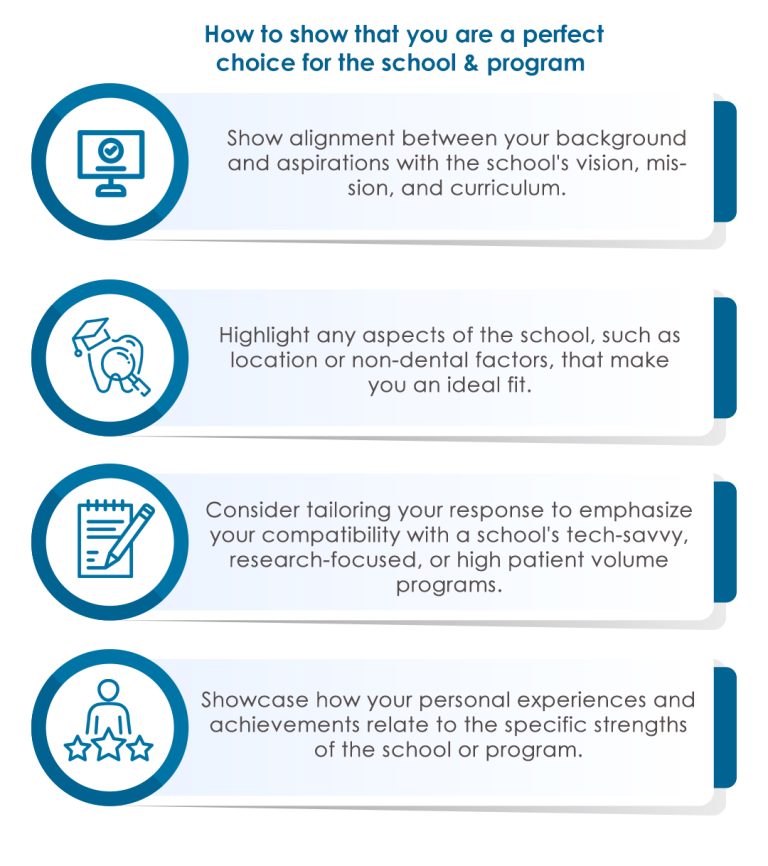
Reference:
How to pursue an Advanced International Dental Program in the US?
Chasing the American Dream as a Dentist
